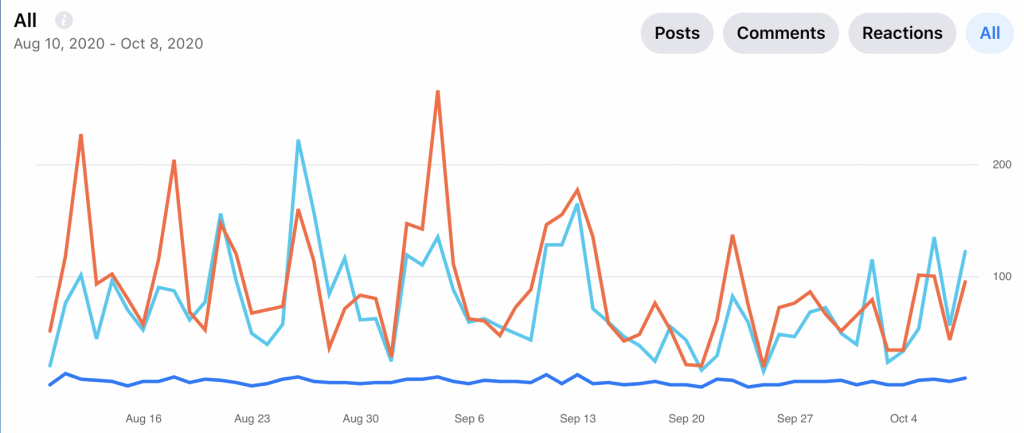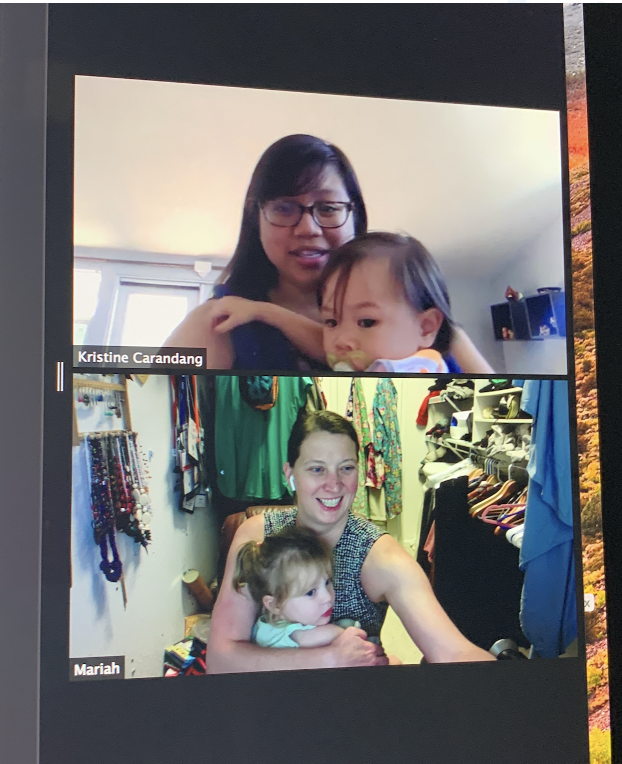This article is based on a presentation I gave at the virtual American College of Rheumatology Annual meeting on November 8, 2020.
I was diagnosed with rheumatoid arthritis (RA) at the age of 25, and by far the biggest challenge I have faced since my diagnosis has been in becoming a mom.
Today I have three children, and in terms of my RA I’ve had a range of pregnancy and breastfeeding experiences. My first pregnancy was completely unmedicated, the postpartum flare made infant care extremely difficult, and I was advised to stop breastfeeding to restart medication. By contrast, with my last pregnancy I stayed on a pregnancy-safe biologic the entire time, I had almost no postpartum flare, and I was able to make my own choices about breastfeeding.
But it’s not just pregnancy and breastfeeding – RA impacts every aspect of motherhood. As a brand-new mom I struggled to dress my son because those teeny tiny snaps were difficult for my hands. When my biologic stopped working after my second pregnancy, I found myself needing to use a wheelchair when we took the kids to the zoo. And during this pandemic I’ve had to figure out how to discuss my increased risk with my children in a way that wouldn’t scare them. These are challenges that most healthy moms don’t have to face.
It was these isolating experiences that led me to launch Mamas Facing Forward in 2015 as a private Facebook group. In 2018, I also launched this website. From my perspective, mothers with chronic illnesses face unique challenges, and I wanted to create a platform where these women could connect, share resources, and find support and encouragement.
Mamas Facing Forward Facebook Insights
Since launching Mamas Facing Forward, the group has grown to include more than 2,000 women from all over the world. This number may not be as large as some other Facebook support groups, but that’s due in part to my strict membership criteria and group rules. Every member of the group has to agree that they are a mom (or considering becoming one) and that they personally live with a chronic illness.
Members also have to proactively agree to follow our group rules. While I encourage members to share personal experiences and useful resources, we have a strict rule against giving each other medical advice. We also have rules in place designed to foster an optimistic, forward facing atmosphere.

As the group admin, I have access to some general statistics about the group. At the time of my presentation, the group averaged 1,784 active members over a 60-day period – this shows women are not only joining the group, they’re utilizing it regularly. And while we may have only 10 or so new posts on any given day (that dark blue line), comments (the light blue) and reactions (the orange) often number in the hundreds each day.
Our Qualitative Survey
After 5 years of moderating this group, I wanted to understand what sort of role Mamas Facing Forward is playing in the chronic illness community and in the experience of individuals. I teamed up with two qualitative researchers – Courtney Wells and Kristine Carandang. Together we worked to develop a survey with IRB approval from the University of Wisconsin – River Falls and asked for voluntary participation in the group.

In their open-ended answers, the 37 women who answered our survey discussed a full range of family planning stages. Some were merely considering pregnancies, others were wanting to conceive a child – including those who had been diagnosed between children – and those discussing motherhood covered a range of ages from infants, to toddlers, to older children. Participants also discussed various topics, including medications, breastfeeding, adaptations or life hacks, and adjusting to a new diagnosis.
Expressions of Frustration
During the survey, we asked what participants would like healthcare providers, researchers, or policymakers to know about the experiences and needs of mothers with chronic illness. We’re still working with this data to see what we can learn from it, but interestingly at least three quarters of the women answered this question by expressing frustration that their needs were not being met.
The exact reason for this frustration varied. Here are a few examples:
“My rheumatologist has provided me with almost no information about pregnancy and RA.”
“I wish it was more commonplace for rheumatologists to collaborate with the OBGYNs to coordinate care.”
“When they’re treating a mom with dependent children, they’re not just treating one patient and one set of needs…Our life doesn’t exist in a vacuum inside the exam room.”
“We should be actively involved in decisions regarding our care…I’m an expert on me! My contributions and preferences matter.”
While our conclusions are still preliminary, the message we understand at this point is that women living with chronic illnesses who are or want to become mothers are a unique patient group, with unique needs as a population and as individuals in their own contexts.
In order for these needs to be met, these women called for their doctors to support them across all stages of family planning, from pre-conception through raising older children. They also called for doctors to be better trained on how to provide this support and to include these women as informed, resourceful, and active decision makers in their own care and family planning.
Personally, I’ve witnessed a lot of improvement over the past few years when it comes to supporting mothers with rheumatic conditions during pregnancy and postpartum – from greatly improved data on medication use during pregnancy and breastfeeding, to the evidence-based clinical practice guidelines issued by ACR last year. These improvements give women today many more options than just a few years ago.
But I’m also contacted regularly by women from all over the world, and I can tell you anecdotally that many times these women still aren’t getting the information and support they need from their doctors. That’s how most of them find me in the first place – they have unanswered questions, they turn to Google, and that leads them to me. So I think that providing support for this unique patient group is an area where healthcare professionals can continue to improve.
Read about Part 2 of this presentation: The Role of the Mamas Facing Forward Facebook Group in the Chronic Illness Community

